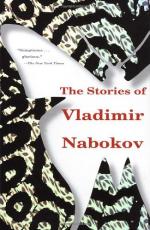|
This section contains 1,825 words (approx. 7 pages at 300 words per page) |

|
SOURCE: “Nabokov's Poetics of Vision, or, What Anna Karenina Is Doing in Kamera obskura,” in Nabokov Studies, Vol. 3, 1996, pp. 1-12.
In the following essay, Seifrid argues that visual and thematic elements in Nabokov's fiction correspond to passages in Tolstoy's Anna Karenina.
“A mysl' liubit zanavesku i kameru obskuru.”
Dar (383)
“But thought likes curtains and the camera obscura.”
The Gift (338)
Unlike Dostoevsky (“old Dusty,” with his “dusty-and-dusky” ways, as the hero of Despair puts it), Tolstoy typically comes in for high praise in Nabokov's remarks on his Russian predecessors.1 One early work in particular (Kamera obskura, 1933; Laughter in the Dark, 1938/1965) dwells on Tolstoy with a concentration that might induce us to wonder about the nature of the Tolstoyan influence on Nabokov's early fiction—and thus also, in a broader context, of the reception of Russia's nineteenth-century fiction by the modernist emigration. With Kamera obskura something much more central to...
|
This section contains 1,825 words (approx. 7 pages at 300 words per page) |

|


